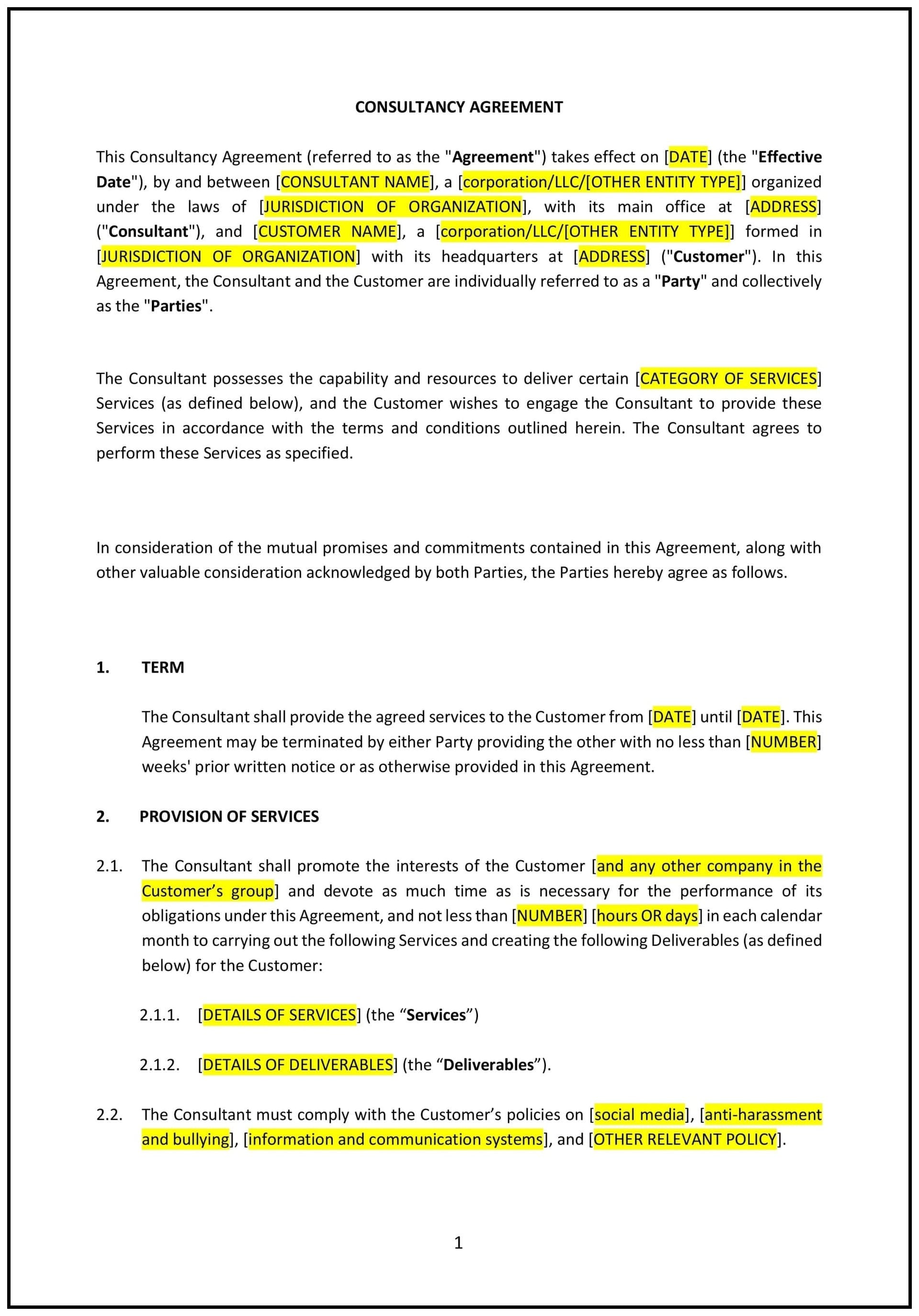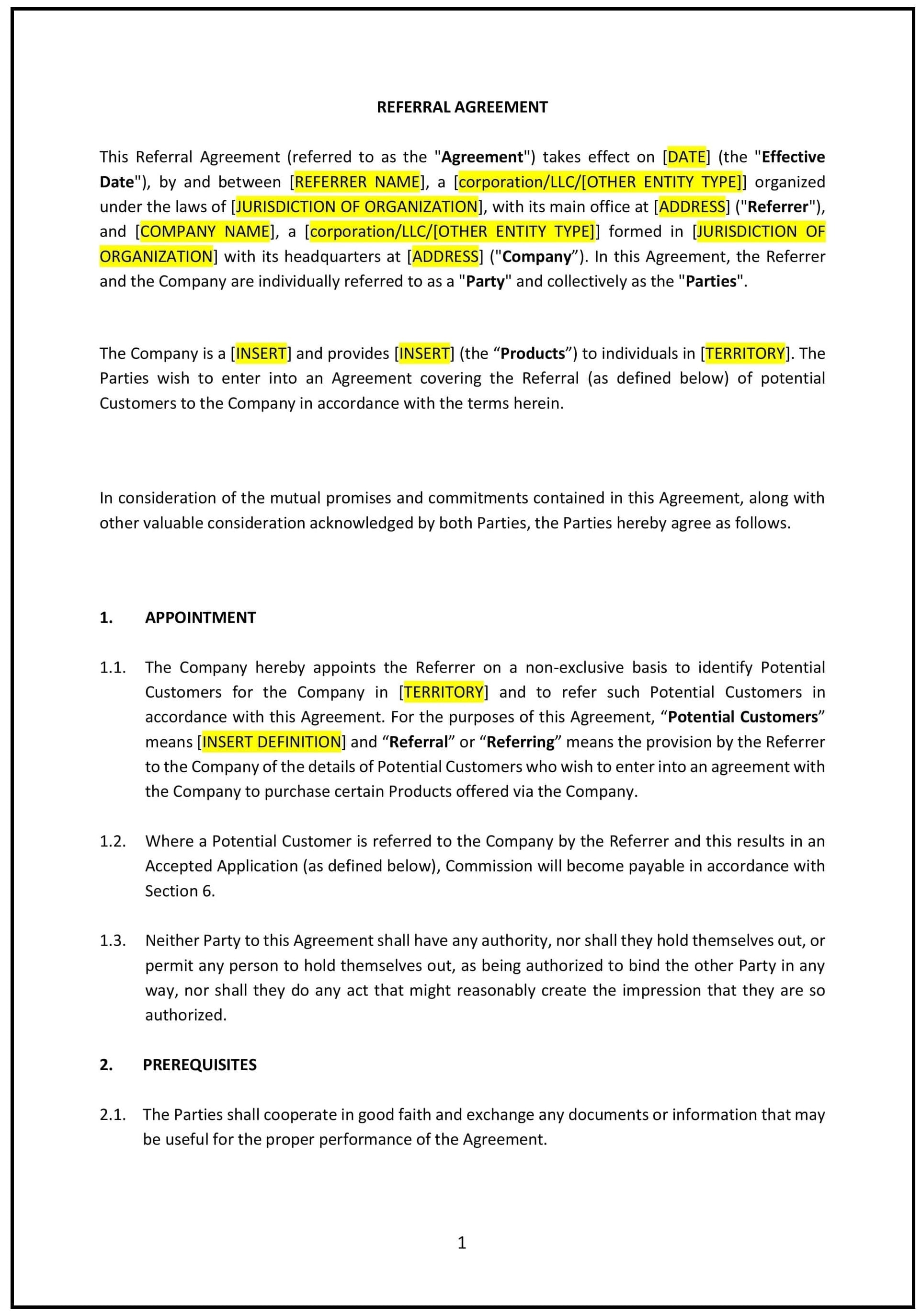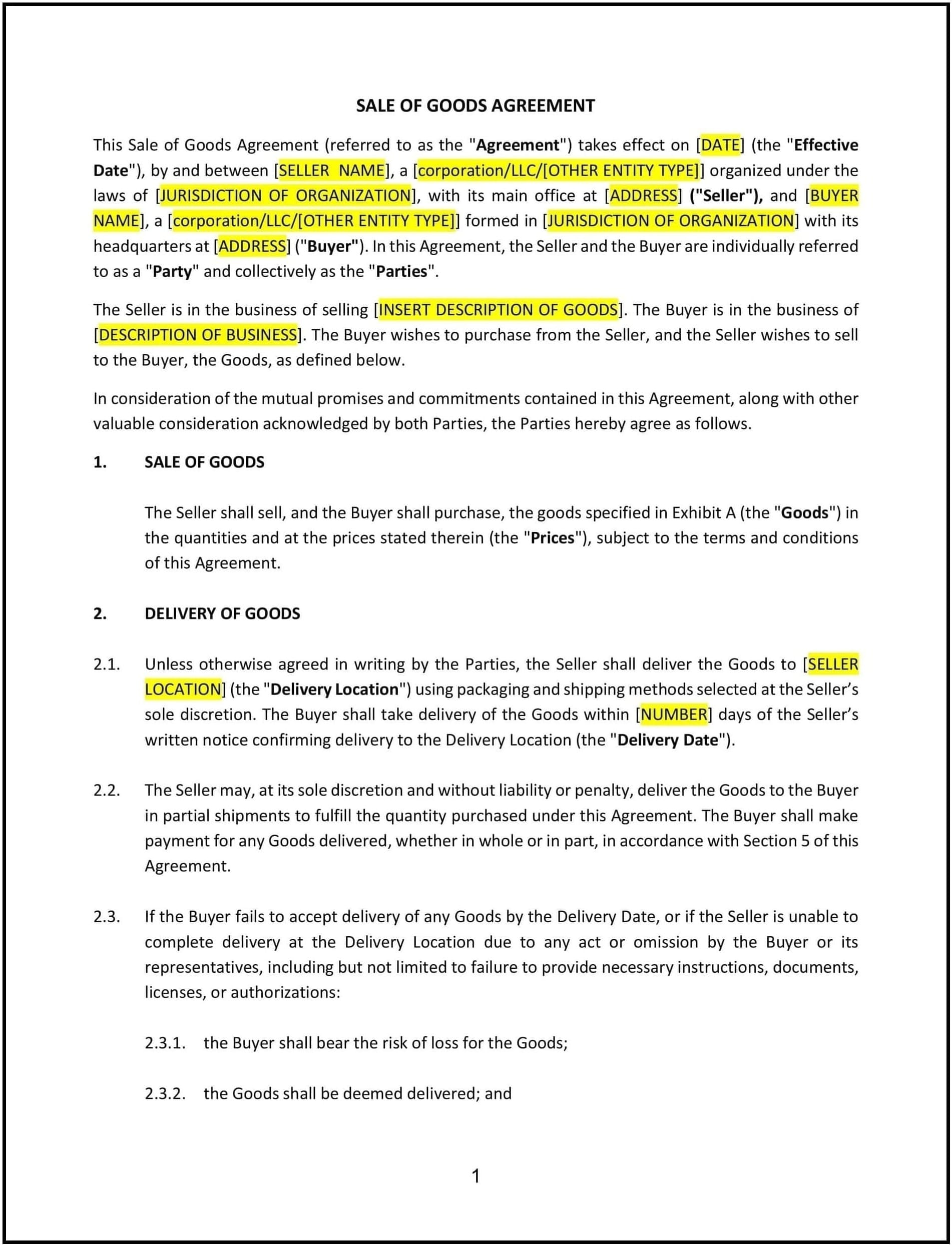Service Level Agreement (SLA) (Georgia): Free template
Service Level Agreement (SLA) (Georgia)
A Service Level Agreement (SLA) is a formal contract that establishes clear expectations between a service provider and a client. For business owners in Georgia, an SLA is a critical tool to ensure accountability, build trust, and protect your business from misunderstandings or disputes. Whether you’re in technology, logistics, healthcare, or professional services, an SLA sets measurable standards for performance and outlines how issues will be resolved if those standards aren’t met.
In Georgia, industries like manufacturing, logistics, healthcare, and IT services rely heavily on SLAs to maintain high-quality service delivery and meet client expectations. For example, an Atlanta-based logistics company might use an SLA to define delivery timelines and performance benchmarks, while a healthcare provider could guarantee patient portal uptime and support availability. A well-crafted SLA not only helps you meet client expectations but also ensures compliance with Georgia’s regulatory environment, including its focus on consumer protection and data privacy.
By clearly outlining what you’ll deliver, how performance will be measured, and what happens if things go wrong, an SLA provides a roadmap for success. This clarity is particularly valuable in Georgia’s competitive business environment, where clients expect transparency and reliability.
Tips for drafting and maintaining a Service Level Agreement (SLA) in Georgia
- Clearly describe the services you’ll provide: Start by explaining the services in simple terms. Avoid technical jargon and make sure your clients understand what you’re offering. For example, if you’re providing IT support, specify whether it includes 24/7 availability, response times, and resolution deadlines.
- Example: “We guarantee a response to critical issues within 2 hours and resolution within 8 hours.”
- Set measurable performance goals: Define specific metrics to evaluate your service quality. These are called Key Performance Indicators (KPIs). For instance, if you’re offering cloud hosting, you might promise 99.9% uptime. If you’re in logistics, you could commit to delivering goods within 48 hours.
- Tip: Be realistic when setting these goals to avoid overpromising and risking penalties.
- Explain remedies for missed targets: Clients want to know how you’ll address service failures. Include provisions for compensating clients, such as refunds, credits, or discounts, if performance falls below agreed-upon standards.
- Example: “If our platform experiences downtime exceeding 0.1% in a month, we’ll issue a 5% credit on the next invoice.”
- Ensure compliance with Georgia laws: Georgia has specific regulations that may impact your SLA, such as data privacy laws and consumer protection statutes. Make sure your agreement aligns with these requirements, especially if you handle sensitive client information.
- Tip: If you’re unsure about legal compliance, consult a lawyer familiar with Georgia business law.
- Include a process for resolving disputes: Disagreements can arise even with the best intentions. Your SLA should outline how disputes will be handled—whether through negotiation, mediation, or arbitration. Specify that Georgia law will govern the agreement to avoid jurisdictional confusion.
- Example: “Any disputes will be resolved through arbitration in Atlanta, Georgia.”
- Keep your SLA updated: As your business evolves or regulations change, your SLA may need adjustments. For example, if you introduce new services or adopt new technologies, update the agreement to reflect these changes. Regularly reviewing your SLA ensures it remains relevant and enforceable.
- Tip: Set a reminder to review your SLA annually or whenever there’s a significant change in your business operations.
Frequently asked questions (FAQs)
Q: What should I include in my Service Level Agreement (SLA) in Georgia?
A: Your SLA should include a clear description of the services, measurable performance goals (like uptime guarantees or response times), remedies for missed targets (such as credits or refunds), compliance with Georgia laws, and a process for resolving disputes. It’s also helpful to specify how performance will be tracked and reported.
Q: How does Georgia law affect my SLA?
A: Georgia law emphasizes transparency and fairness in contracts. Ambiguities in your SLA could be interpreted against you, so it’s crucial to be clear and specific. Additionally, Georgia has strict consumer protection laws, so ensure your SLA complies with regulations like data privacy requirements if applicable.
Q: Can I limit my liability in an SLA?
A: Yes, you can include clauses that limit your liability for issues like service outages or delays. However, these clauses must be reasonable, clearly stated, and compliant with Georgia contract laws. For example, you can’t exclude liability for gross negligence or intentional misconduct.
Q: Which industries in Georgia commonly use SLAs?
A: Industries like technology (SaaS platforms, IT services), healthcare (telemedicine, patient portals), logistics (delivery services), and manufacturing frequently use SLAs to set clear expectations and maintain high service standards.
Q: How can I make sure my SLA aligns with Georgia laws?
A: Ensure your SLA complies with consumer protection laws, data privacy regulations, and other relevant statutes. Regularly updating your SLA to reflect changes in laws or your business operations is also essential.
This article contains general legal information and does not contain legal advice. Cobrief is not a law firm or a substitute for an attorney or law firm. The law is complex and changes often. For legal advice, please ask a lawyer.


